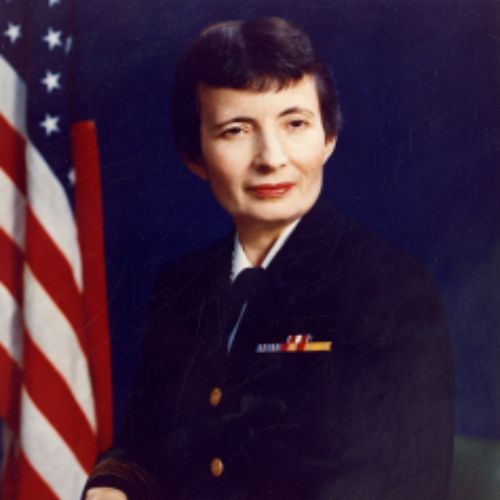A Guide to Nursing Theories

Nursing theories are conceptual frameworks created by nursing experts to guide practice. They offer a structured approach to understanding, analyzing, and improving patient care. Just like stars guiding sailors through the night sky, these theories guide nurses through the complex terrain of patient care, offering professional insights and practical advice.
Read on to learn time-tested wisdom from some of the brightest minds in nursing that laid the foundations of nursing practice. Now, it’s your turn to use these nursing theories to help you provide top-notch care to patients.
What Is Nursing Theory?
It’s a set of organized and systematic ideas, concepts, and principles that define the foundation of nursing practice. Every theory starts as a hypothesis — a concept that researchers test to see whether or not it’s true. Theories are the concepts that have been proven to be accurate and effective through research.
You can think of nursing theories and models as a collection of strategies that have been documented to keep steering nursing practice in the right direction and serve as a basis for nursing philosophy, education, research, and clinical practice.
What Are the Types of Nursing Theories?
A nursing theory serves diverse purposes and can be classified into different types. Some aim to explain big nursing ideas, while others are very hands-on. There are three major categories of theories:
- Grand nursing theories are big-picture ideas that define the core principles of nursing. For example, Florence Nightingale’s Environmental Theory explains how the environment impacts a patient’s health.
- Middle-range nursing theories are narrower in focus, concentrating on specific aspects of nursing practice. An example is Madeleine Leininger’s Transcultural Nursing Theory, which focuses on providing culturally sensitive care to diverse patient populations.
- Practice nursing theories are all about putting knowledge into action, providing practical guidance for nurses. Examples of nursing theories in this category include Orem’s Self-Care Deficit Theory and Peplau’s Theory of Interpersonal Relations.
List of Nursing Theories: 11 Influential Frameworks
- Change Theory by Kurt Lewin
- Environmental Theory by Florence Nightingale
- Human Caring Theory by Jean Watson
- Novice to Expert Theory by Patricia Benner
- Nursing Needs Theory by Virginia Henderson
- Self-Care Deficit Theory by Dorothea Orem
- Theory of Caring by Kristen Swanson
- Theory of Goal Attainment by Imogene King
- Theory of 21 Nursing Problems by Faye Abdellah
- Transcultural Nursing Theory by Madeleine Leininger
- Unitary Human Beings Theory by Martha Rogers
1. Change Theory

Kurt Lewin. Source: Britannica
Creator: Kurt Lewin
Purpose: Initiate and manage change within healthcare organizations.
Description: Lewin’s change theory suggests that behavior is like a tug-of-war between opposing forces. Driving forces push for change, while inhibiting forces resist it, creating a dynamic balance that determines whether or not change occurs. Here are a few of the key components:
- Suggests that change happens in three stages: unfreezing, changing, and refreezing. Unfreezing prepares for change by recognizing the need for it. Changing implements the desired changes, while refreezing solidifies the change as a permanent part of the organizational culture.
- Identifies forces for change (driving forces) and those against it (restraining forces). Nurses can then strengthen change-supporting forces and weaken opposing forces, helping implement change successfully.
- Emphasizes that change is a dynamic process that may require flexibility and adaptability.
2. Environmental Theory

Florence Nightingale. Source: History.com
Creator: Florence Nightingale
Purpose: Create a healing environment for patients and promote nursing practices that prioritize cleanliness and sanitation.
Description: Nightingale’s nursing theory laid the foundation for professional nursing standards. It focuses on the impact of the environment on health outcomes, stressing the importance of providing a clean, well-ventilated, and organized environment for patients. Key aspects of her theory include:
- Identifies 5 environmental factors essential in reducing the risk of illness and promoting health: fresh air, pure water, efficient drainage, cleanliness or sanitation, and light or direct sunlight.
- Emphasizes the importance of providing a noise-free and warm environment, along with addressing a patient’s dietary requirements in promoting health.
- Advocates for nursing practices that prioritize environmental hygiene, including maintaining clean patient rooms, proper waste disposal, and ensuring adequate ventilation.
3. Human Caring Theory

Jean Watson. Source: Watson Caring Science Institute
Creator: Jean Watson
Purpose: Help activate patients’ inner healing processes through caring-healing arts.
Description: In Jean Watson’s nursing theory, the power of empathy and compassionate care are emphasized in fostering healing and well-being. Important concepts in this theory include:
- Emphasizes that healthcare professionals blend “carative factors,” representing compassionate care, with “curative factors,” referring to traditional medical treatments.
- Outlines 10 caring factors, often referred to as the Caritas Processes, which serve as guiding principles for nursing practice.
- Adopts a humanistic perspective, viewing patients as whole beings needing holistic care that encompasses their physical, emotional, spiritual, and social health.
4. Novice to Expert Theory

Patricia Benner. Source: Nursing Times
Creator: Patricia Benner
Purpose: Help nurses understand their growth from beginners to skilled professionals.
Description: Benner’s theory describes the journey nurses undergo in developing expertise from novice practitioners to professionals. It highlights the importance of hands-on experience in shaping nursing skills and suggests that supportive learning environments help nurses become masters in their field. This theory includes:
- Identifies 5 stages of skill acquisition: novice, advanced beginner, competent, proficient, and expert.
- Highlights the importance of clinical experience, intuition, and practical knowledge in shaping nursing expertise.
- Stresses the significance of mentorship, supportive learning environments, experiential learning, and reflective practice when transitioning from novice to expert.
5. Nursing Needs Theory

Virginia Henderson. Source: Working Nurse
Creator: Virginia Henderson
Purpose: Define the role of nurses in assisting patients to achieve independence in meeting their basic needs.
Description: Henderson’s theory identifies patients’ basic needs and clarifies the nurse’s role in supporting patients to fulfill these needs. Important aspects of this theory include:
- Focuses on 14 fundamental needs, including breathing, eating, and communicating, which must be met.
- Outlines the nurse’s responsibilities in helping patients meet their needs and highlighting the importance of providing care that is supportive, nurturing, and empowering.
- Emphasizes the importance of tailoring care to meet each patient’s unique situation.
6. Self-Care Deficit Theory

Dorothea Orem. Source: Chesney Archives
Creator: Dorothea Orem
Purpose: Empower individuals to perform self-care activities to maintain or improve health.
Description: Orem’s nursing theory suggests that patients are better able to recover when they maintain independence. To assist patients in healing, nurses need to focus not on doing things for the patient, but on helping them gradually regain the ability to take charge of their own self-care. Essential parts of this theory include:
- Focuses on 3 interrelated concepts: self-care, self-care deficit, and nursing systems, helping nurses decide how much help a patient needs.
- Outlines 3 types of nursing systems that help meet a patient’s self-care needs: fully doing things for the patient, doing things together, and teaching the patient how to care for themselves.
- Highlights universal and developmental needs individuals must meet to stay healthy, such as air, water, nutrition, elimination, activity and rest, solitude and social interaction, and prevention of hazards.
7. Theory of Caring

Kristen Swanson. Source: Washington State Nurses Association
Creator: Kristen Swanson
Purpose: Emphasize the importance of caring relationships in patient care.
Description: Swanson’s theory provides nurses with a comprehensive understanding of how caring behaviors impact both patients and nurses themselves. It emphasizes the importance of holistic, patient-centered care that takes into account the physical, emotional, and spiritual needs of the individual. This theory focuses on a range of ideas, including:
- Outlines 5 caring processes: maintaining belief, knowing, being with, doing for, and enabling, which guide nurses in forming meaningful connections with patients and providing holistic care.
- Stresses the importance of soft skills like compassion, knowledge, optimism, reflection, concern, commitment, good communication, focusing on others’ experiences, respecting dignity, and being present for others.
- Emphasizes the value of being present with patients, both physically and emotionally.
8. Theory of Goal Attainment

Imogene King. Source: Nurse Key
Creator: Imogene King
Purpose: Guide nurses in understanding the dynamic interactions between individuals and their environments to achieve health-related goals.
Description: King’s theory emphasizes the importance of setting mutually agreed-upon goals between the nurse and the patient. These goals are based on the patient’s needs, preferences, and abilities. The nurse collaborates with the patient to develop a plan of care aimed at achieving these goals. Key components of this theory include:
- Identifies 3 interacting systems: personal, interpersonal, and social. Each of these systems has its own set of concepts, such as body image, communication, and decision-making to accomplish goals, which may include patient advocacy, education, counseling, and coordination of care.
- Views individuals and their environments as open systems that continuously interact and exchange information.
- Highlights the role of nurses as facilitators in helping patients navigate the healthcare system and achieve optimal health outcomes
9. Theory of 21 Nursing Problems

Faye Abdellah. Source: Circulating Now
Creator: Faye Abdellah
Purpose: Provide a structured framework for nurses to identify, prioritize, and address the diverse health needs of patients.
Description: Abdellah’s theory is rooted in the belief that nursing should be proactive rather than reactive. By systematically assessing patients’ health status and identifying potential issues early on, nurses can intervene effectively to promote optimal health outcomes. Here are some of the key aspects of this framework:
- Supports comprehensive health assessments, covering not just physical health but also psychological, social, and spiritual.
- Outlines 21 nursing problems, ranging from basic physiological needs to more complex psychological and social issues. These provide a structured approach for nurses to assess and address various health concerns.
- Promotes preventive care, encouraging nurses to identify potential health risks early and take proactive measures to prevent them from escalating.
10. Transcultural Nursing Theory

Madeleine Leininger. Source: University of Nebraska Medical Center
Creator: Madeleine Leininger
Purpose: Enhance nursing practice by promoting culturally congruent care for diverse patient populations.
Description: Understanding and incorporating culture-specific practices helps patients to adhere to health recommendations. Key ideas from this theory include:
- Emphasizes the need for nurses to develop cultural competence by understanding their biases and learning about other cultures.
- Stresses the importance of cultural assessments to identify patient preferences and care plans that meet the individual needs of each patient.
- Promotes supportive environments that value and celebrate cultural diversity.
11. Unitary Human Beings Theory

Martha Rogers. Source: Nurse Key
Creator: Martha Rogers
Purpose: Advocate for holistic nursing care that considers the individual’s physical, emotional, spiritual, and environmental dimensions.
Description: According to Rogers’ theory, people are seen as unified fields of energy inseparable from their environment. It promotes a holistic nursing approach that respects the unity between individuals and their environment. This theory includes:
- Identifies and understanding the unique patterns of each individual, such as perceptions, behaviors, and ways of interacting with the environment.
- Introduces the concept of energy fields, which extend beyond the physical body to encompass the person and their environment.
- Views nursing as “patterning,” or guiding individuals to harmonize with the greater universe.
Ready to Practice Nursing Theories in a New Role?
IntelyCare can match you with the job you are looking for ― one that offers purpose, meaning, and fulfillment. Sign up today to receive customized nursing job alerts directly to your inbox.


